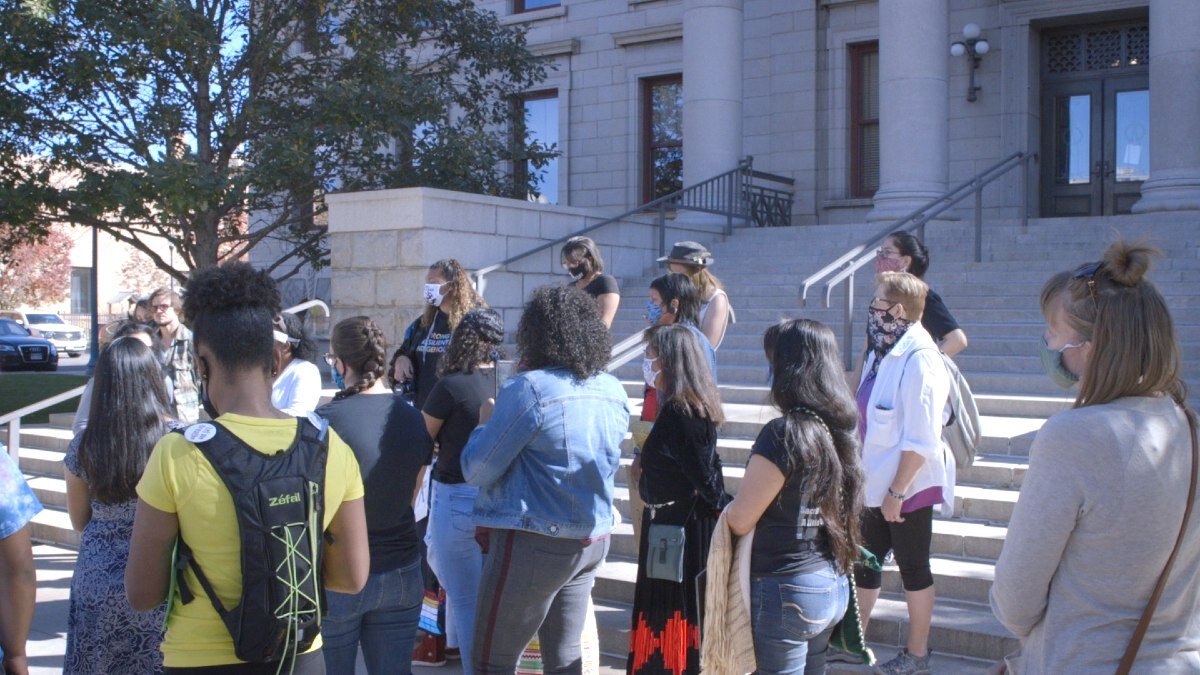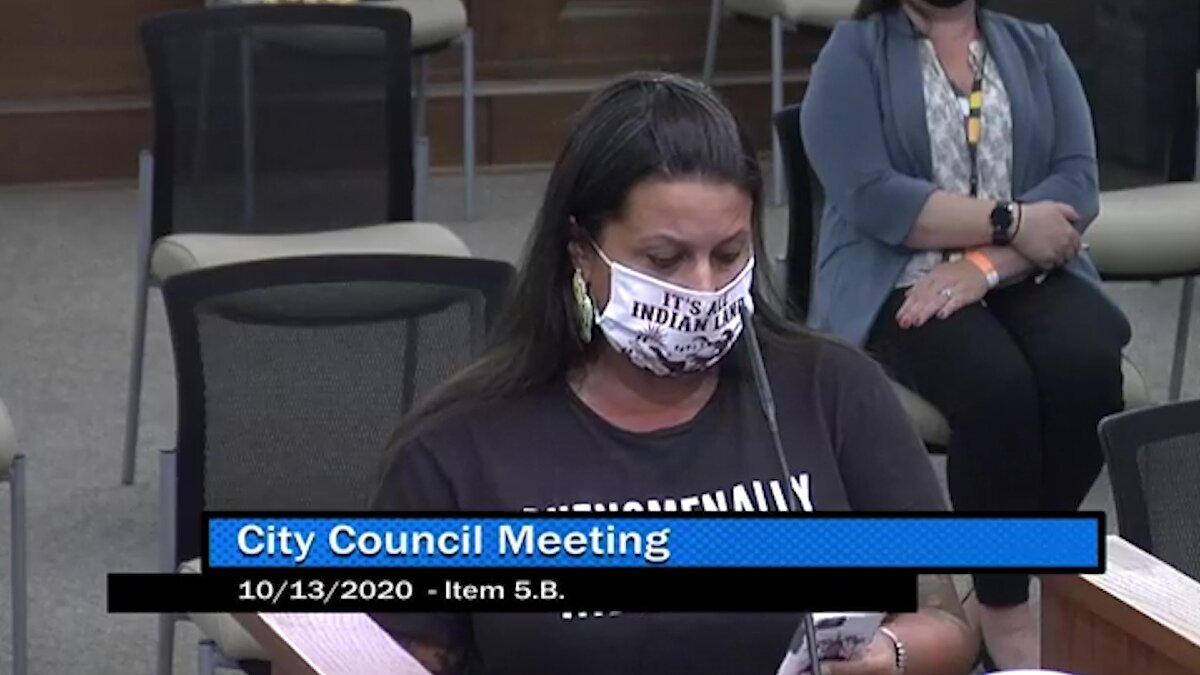Colorado Springs City Council votes unanimously to enact Indigenous Peoples' Day

COLORADO SPRINGS, Colo. — Colorado Springs City Council passed a unanimous vote Tuesday to enact Indigenous Peoples’ Day, to be held the second Monday of each October.
The resolution will replace a one-day designation that has been renewed each year for the past five years.
“We’re thankful that this is now a permanent resolution,” said Monycka Snowbird of the Anishinaabe and Marten Clan. “We’ve been wanting this for decades.”
Five years ago, Snowbird and several friends met at a coffee shop to work on a plan to approach City Council about honoring Indigenous Peoples’ Day. A permanent resolution would require a vote of Council.
“Councilmember Richard Skorman didn’t think there would be enough votes to get it to pass through Council,” said Snowbird. “He was afraid that if a permanent resolution was denied, we wouldn’t be able to get it back on the agenda.”
Instead, Councilmember Skorman—who is also Council President—has signed a one-day proclamation each year for the last five years. A one-day proclamation does not need a Council vote.
“We had to ask for that every year,” said Snowbird. “I’m tired. We shouldn’t have to beg for recognition. This should be something that the City wants to do on its own, because it its the right thing to do.”
The resolution passed 9-0.
“Finally, with all the other momentum that’s been going around the country, we were able to get the votes,” said Snowbird. “But we didn’t think it was going to be a unanimous vote.”
The second Monday of October was formerly observed by the state as Columbus Day. Earlier this year, Colorado state legislators voted to abolish Columbus Day.
Other Colorado cities, including Aspen, Boulder, Crested Butte, Durango, and Gunnison have also created permanent resolutions to honor the original people of this land. In 2001, the city of Denver replaced Columbus Day with César Chavez Day.
Following the vote, Snowbird met outside City Hall with other indigenous supporters who led a celebratory march downtown with a message of permanence and resilience: “Indigenous Day! Here to stay!”

“The indigenous community in Colorado Springs and across the country doesn’t get a lot of recognition,” Snowbird said. “Our voices are silenced pretty often. There is a lot of erasure of our culture. And so for them to consciously choose to honor us says a lot about the direction that we’re going.”
“I was born and raised here. I am an indigenous mother of indigenous children, and this proclamation means more, I think, than you’ll know,” said Anna Cordova, advocate for Indigenous Peoples’ Day. “We’re still here. We’re still stewards of these places. And hopefully, we’ll help people to also be good stewards of these places.”
“Native ties to this region go back for thousands of years,” said Snowbird. “We still have a thriving indigenous population here, with members of over 100 tribal nations contributing to the diversity of our community. And although many of us are not living in our homelands or on our reservations, we still carry our traditions, our culture, and our ceremonies with us here.”
Honoring Indigenous Peoples’ Day is just one of several initiatives Snowbird is part of to correct history and provide accurate representation of indigenous people in Colorado Springs and beyond, including renaming the Cheyenne Mountain High School Indian mascot.
“The Board of Education for D12 has been very supportive and very open to hearing Native voices locally, and from the tribes that the mascot specifically impacts, the Northern Cheyenne and the Southern Cheyenne,” said Snowbird. “We’re hoping that the mascot issue will be over soon.”

Snowbird, who works at Haseya Advocate Program, is a certified Domestic Violence Tribal Advocate and a Sexual Assault Tribal Advocate with the National Tribal Training Institute.
“Columbus Day was observed during October, which is also Domestic Violence Awareness month,” said Snowbird. “Columbus began the legacy of violence against indigenous women. His own writings document his atrocities of rape, murder, and child trafficking. In 2020, after 500 years of this legacy, we now have shocking statistics, such as that 4 out of 5 Native women will experience violence in their lifetime, and over half will experience sexual violence. Over 90% of this violence is still at the lands of a non-Native perpetrator.”
Snowbird said Native people also have high rates of suicide as a result of historical and intergenerational trauma.
Thinking of the steps ahead, Snowbird pauses to reflect on yesterday’s acknowledgement of indigenous culture.
“We have a few other things here in town that are not accurately representative of our culture, so we’ll be moving on to address some of those,” she said. “I’m hoping when my grandson is a little bit older, he won’t have to be taking on any of these issues.”
“To be able to have one less thing to have to fight, is one more thing we can celebrate,” said Snowbird. “It’s a huge win for our community.”
